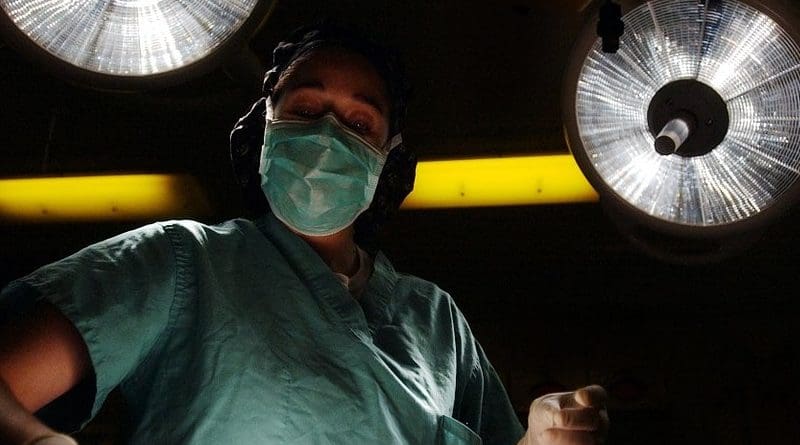West’s Dilemmas On Brain Death Pose A Challenge For Asia – OpEd
By UCA News
By Cristian Martini Grimaldi
(UCA News) — The Uniform Law Commission, a non-profit American association, through a recent press release unveiled a contentious proposal to revise the definition of brain death, replacing whole brain death with partial brain death.
The suggested change could potentially jeopardize patients with severe neurological injuries, as they might be declared dead despite retaining brain function.
The main rationale for this alteration is to increase the pool of potential organ donors.
Nevertheless, it is essential to acknowledge that such a revision may lead to significant adverse effects, particularly concerning the safeguarding of vulnerable patients, the efficacy of patient advocacy, and the essential trust inherent in the physician-patient relationship.
The very notion of changing the criteria for declaring a person brain dead is fraught with ethical and medical dilemmas.
Whole brain death has been the established standard for decades, with substantial scientific and ethical foundations.
By shifting towards partial brain death, the Uniform Law Commission appears to prioritize the potential to increase organ donations over the preservation of patient rights and dignity.
In fact, one of the most concerning aspects of this proposal is the potential risk it poses to vulnerable patients.
Individuals with severe neurological injuries could be declared dead prematurely, denying them the right to receive ongoing medical care and support.
The potential for medical errors to occur while determining partial brain death also raises alarm bells, as irreversible consequences may befall patients who could have otherwise recovered with appropriate treatment and care.
After all, it is evident why most Western countries deem the death penalty not only morally objectionable but also fraught with rational difficulties. For instance, in the event of an error in determining the true culprit, the irreversible nature of the ultimate verdict (death) makes it impossible to rectify.
Also, it is interesting to note how in different countries the very definition of death may differ. For example, in many Asian countries, things get even more complicated.
The Japanese health system for example faces challenges in implementing brain death determination, even though it has legal guidelines for it.
The historical controversy surrounding brain death, cultural aversion to organ donation, and inadequate brain death education contribute to the reluctance in acknowledging brain death as true death.
Additionally, Japan’s healthcare system and cultural expectations prolong end-of-life support until cardiovascular death, delaying brain death diagnoses.
It may be recalled here that in 1968, when Dr. Juro Wada performed one of the earliest heart transplants he was investigated for murder because the donor’s heart was still working.
The conflicts between societal expectations and Western-style medical training lead to dilemmas for Asian physicians, who are trained in autonomy but culturally expected to prioritize family wishes.
This creates a discordant opposition of social and medical forces in Asian countries, impacting clinical protocols and laws regarding brain death.
According to a survey conducted by the Japanese Ministry of Health, Labor, and Welfare in 2017, just 39.5 percent of the overall population engaged in end-of-life conversations, despite the existence of guidelines for advance care planning. The majority of these discussions (94 percent) occurred within families, while only 4.2 percent involved medical staff.
As per the South Korean guidelines, the declaration of brain death is subject to a specific protocol. A committee comprising both medical and non-medical representatives is responsible for reviewing the results of the brain death examination.
Only when this committee reaches a unanimous decision can a patient be officially declared brain dead. Consequently, it is not solely at the discretion of individual physicians but is a collective decision made by the committee.
The potential complications arising from altering the definition of brain death are evident. Such a change could significantly increase the complexity of the situation. Also relaxing the criteria for brain death could undermine the effectiveness of patient advocacy.
When medical professionals are incentivized to diagnose partial brain death, they may be less inclined to explore all available treatment options for patients with severe neurological conditions. This could lead to a reduction in efforts to save lives.
The proposed change threatens to erode the trust between physicians and their patients. If the criteria for brain death are altered to accommodate the need for more organ donors, the perception of medical decision-making could be compromised.
Patients may question the motives behind diagnoses, leading to doubts about the impartiality and objectivity of medical practitioners. For all these reasons it is evident that the proposed changes to the definition of brain death being considered by the Uniform Law Commission present a hazardous path, to say the least.
It is imperative for bishops across all Asian countries to actively participate in bioethics forums to provide education and guidance on these matters similar to what the National Catholic Bioethics Center does in the US.
By doing so, they can effectively engage with the moral questions that may arise from future changes in medical practices and public policies. This proactive involvement will enable them to contribute to meaningful discussions and offer valuable insights into ethical considerations, ensuring that any potential challenges are addressed thoughtfully and responsibly.
*The views expressed in this article are those of the author and do not necessarily reflect the official editorial position of UCA News.

